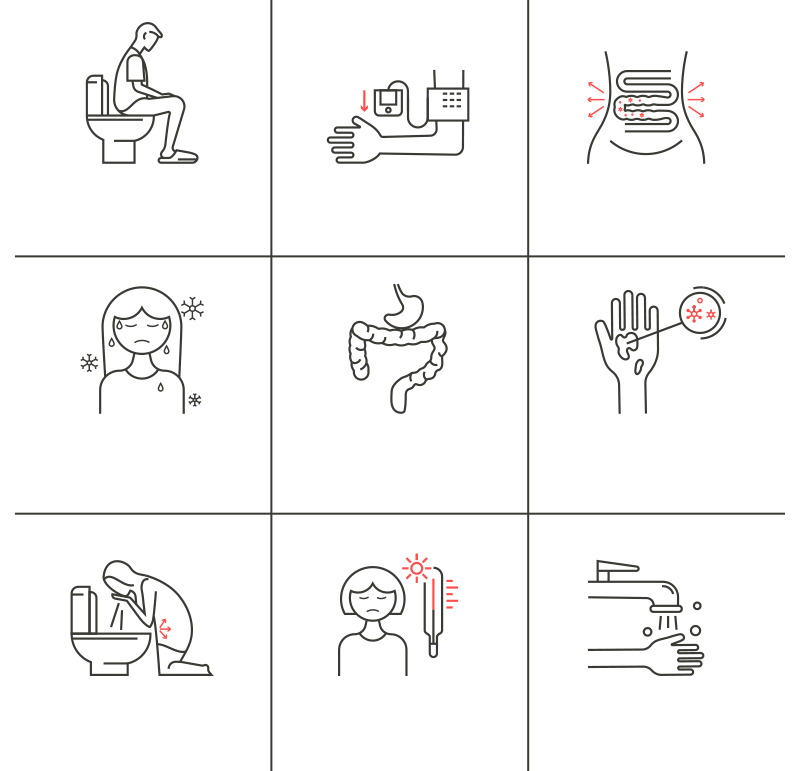Common GI Conditions
Common GI Condition > GI Tract > Infective Gastroenteritis
Common GI Condition > GI Tract > Infective Gastroenteritis
What is Infective Gastroenteritis?
Infective gastroenteritis is inflammation of the intestines and/or stomach caused by an infection, either by a virus or bacteria.
Common symptoms:
Symptoms usually include diarrhoea, but other symptoms include fever, stomach cramps or pain, bloody stools, loss of appetite, nausea and vomiting.
How can I be infected?
A person can become infected if they touch an infected person or surface with the virus or bacteria on it, or eat foods or drink liquids with the virus or bacteria. As such, hygienic measures such as washing of hands with soap and water before eating or drinking, and using the bathroom facilities, can help reduce the risk of getting such infections.
It is also advisable to take precautions such as washing hands before preparing food, avoiding eating food (particularly leftovers or milk containing products) that has been left unrefrigerated for several hours and making sure meat and eggs have not been undercooked.

What should I do if I am infected?
If you develop this condition, the most important thing is to drink enough fluids to avoid getting dehydrated. Suitable fluids include sport drinks, or oral re-hydration solutions sold in pharmacies or supermarkets.
Food to avoid during this time period would include dairy, spicy and fatty and oily foods. Gassy drinks such as soft drinks should be avoided also, as they may make your symptoms worse.
As the majority of cases of infective gastroenteritis are caused by viruses, which usually self-resolve, most people get better with just rest and drinking enough fluids. They may also benefit from medications to treat their symptoms, such as antidiarrhoeal medications (e.g. charcoal tablets). However, some patients may require a course of antibiotics, particularly if there is bloody stool, or a history of recent travel suggesting traveller’s diarrhoea.
Those who are unable to or are at risk of failing to keep up with the loss of fluids from their body may require admission to hospital for an intravenous (IV) drip, which is insertion of a small tube into the vein, to keep them hydrated. Others who should seek medical attention include those who vomit out blood, pass blood in their stools, or experience severe pains in the tummy region.
When to Seek Help?
It would also be advisable to consider seeking medical attention if your symptoms persist longer than a few days, or if there are concerns about dehydration, such as giddiness when standing, an inability to tolerate any fluids, having no urine to pass for more than 4-6 hours.
Special care should be taken with babies or infants who can get dehydrated much easier, the elderly who have a weaker immune system, or patients with concurrent medical conditions- if in doubt, seek medical attention.
Copyright © 2017-2023 National Foundation For Digestion Diseases. All Rights Reserved | Privacy Policy | Terms of Service | Disclaimer